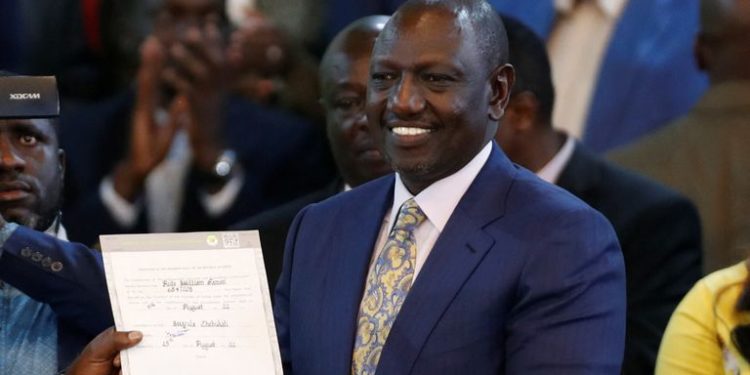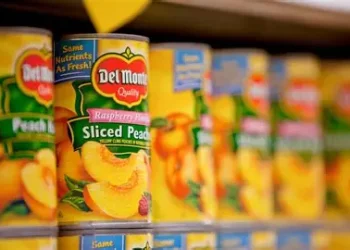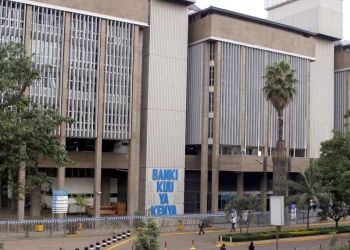Having overcome all hurdles, Dr William Ruto now becomes the fifth President of the Republic of Kenya, after being on the political scene for approximately three decades.
Dr Ruto’s entry into the political scene was quite controversial, under the tutelage of the retired president the late Daniel Arap Moi, serving in the infamous Youth for Kanu ’92 lobby group. The group, famously known s the YK92, was tasked with rallying support and funding for Moi in Kenya’s first multiparty elections since the end of the Cold war.
After winning the election, Moi disbanded the group, throwing Ruto off-balance. He tried to vie for other positions in Kanu without success. In 1997, five years after his entry into politics, Ruto vied for the Eldoret North Parliamentary seat against Moi’s will. Surprisingly, he defeated Moi’s preferred candidate Reuben Chesire. This would mark the start of Ruto’s undefeated run in politics.
He served as an MP until 2013 when he joined hands with outgoing President Uhuru Kenyatta. He became the first Deputy President for Kenya under the 2010 Constitutional dispensation.
Read: Meet Melissa Ng’ania, The Young Advocate Who Helped Ruto Win Supreme Court Case
In 2017, the duo won their second term but fell out almost immediately after President Uhuru Kenyatta reconciled with opposition leader Raila Odinga.
In the 2022 General Elections, Ruto faced fierce opposition from his two former political allies, President Uhuru Kenyatta and Raila Odinga. Forces allied to President Kenyatta and Raila promised that Ruto would not ascend to the top seat, but against all odds, Ruto won by driving a narrative that painted Kenyatta and Raila as dynasties, born of parents who had big political names.
His political journey is an embodiment of resilience and planning and not an occurrence of sheer luck. It carries with it a number of lessons that people can learn in life, not only in politics but also in business nd other aspects of life.
1. Surround yourself with thinkers and doers
While Ruto actually surrounded himself with doers, Raila on the other hand surrounded himself with people who were focused on praising him and his past good deeds. Every person in Ruto’s team had a task to complete, and they did it almost perfectly. From the communication team, to the legal and the agents, everyone did his/her job.
On the other hand, those around Raila felt entitled, creating a picture that they had already won. They, at some point, forgot their jobs (woo voters) and started fighting their opponent (Ruto). They gave Raila false hope. Instead of doing their job, they relegated it to other doers, a non-existent “Deep State”.
Read: Inside William Ruto’s Business Empire
2. If you really want something, work so hard as if your life depends on it
They say power is not given, it is taken. While Ruto was passionate about becoming Kenya’s next President, Raila seemed much withdrawn, including people around him.
3. Be suspicious of abundance and advantage
The Raila team had everything to their exposure, including the support of the sitting President. The country’s security apparatus seemed to be on Raila’s side. However, he failed to take caution and depended so much on the power at his exposure. He ignored every warning, while Ruto took every caution and seemingly sealed every loophole. That made the difference.
4. Know your audience and package a message that resonates with them
Ruto’s started with a message dubbed “hustlers vs dynasties” which seemingly backfired after it appeared to cause class war. He later changed his message to “bottom-up economics”, owing to the sorry state of the economy. The message gave hope to the lower class cadre, who are the majority among voters. The message cut across, washing down the tribal narrative that has dominated the Kenyan political sphere for years.
Read: Rigathi Gachagua Loses Ksh200 Million In Case Against State
On the other hand, Raila’s message lacked clarity. Although the plans looked good, the packaging and messaging were poorly executed and inconsistent. Towards the last two weeks of the campaign, Raila’s team changed its message from a call for unity to “vote blue”. This was confusing to the voter.
5. Be ready to till fields and plant trees whose shed you will never sit under
Well, we can safely say that for the last 10 years and the next 10, Ruto will enjoy the fruits of Raila’s efforts. Raila was part of those who fought for multi-prtyism. In the last 10 years, Ruto has also enjoyed the security of tenure provided by the Constitution, which Raila helped to institutionalise.
The 2010 Constitution also established independent institutions like the Independent Electoral and Boundaries Commission (IEBC) and the Supreme Court, which have played a big role in protecting Ruto’s win.
By the way, Ruto opposed the 2010 Constitution.
Email your news TIPS to editor@thesharpdaily.com


















